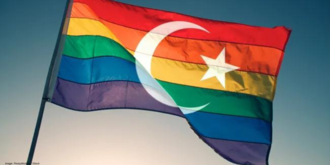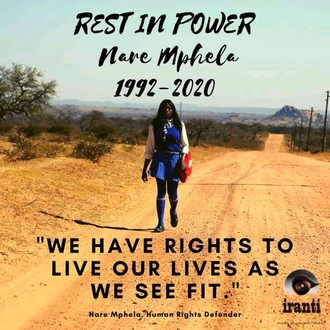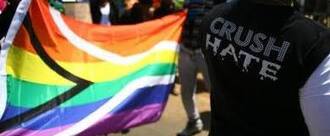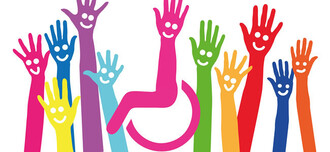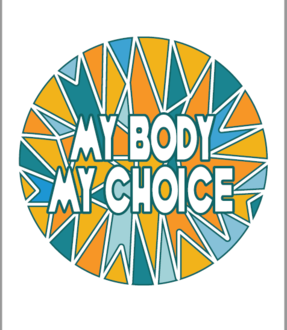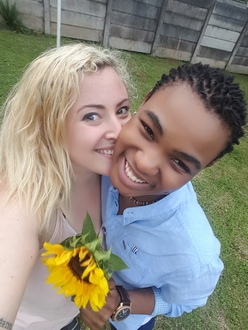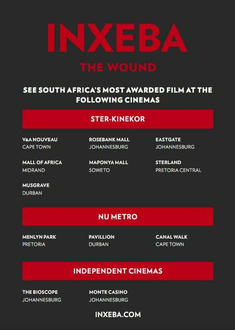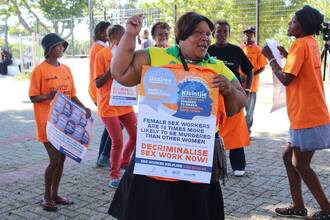- Featured
- Clean air
- Climate justice
- Consumer Rights
- Corporate Accountability
- Data access
- Early Childhood Development
- Economic fairness
- Education
- Electoral fairness
- Environmental justice
- Food justice
- Gender based violence
- Grants/social assistance
- Health
- Housing and infrastructure
- Industry interference
- Land Justice
- LGBTQIA+ rights
- Media/ information access
- Public transport
- Racism
- Reparations
- Safety
- Sanitation
- Service Delivery
- Sexual and Reproductive Rights
- Social justice
- Unemployment
- Womxn's rights/ gender equality
- Workers' rights
- More
-
Demand accountability for Home Affairs homophobiaIt is important for Home Affairs to understand that they are dealing with actual people’s lives. This is a life-altering case and was supposed to be treated like one. Officials must act fairly, lawfully, and in alignment with our constitutional principles. The Minister and the DG must be ashamed for even allowing this case to get to court. References [1] https://groundup.org.za/article/judge-slams-home-affairs-for-unintelligible-illogical-babble-in-gay-case/ [2] https://mg.co.za/article/2016-09-13-homophobic-home-affairs-officials-government-sanctioned-discrimination/ [3] https://www.sahrc.org.za/index.php/sahrc-media/news/item/428-home-affairs-supports-petition-against-homophobic-pastor [4] https://za.boell.org/en/2018/10/11/double-challenge-lgbti-refugees-and-asylum-seekers-south-africa2 of 100 SignaturesCreated by Palesa Ramolefo
-
We call on the MJC to not isolate and discriminate against Queer MuslimsWe strive to create Muslim spaces in South Africa that are safe, affirming and supporting to LGBTQ Muslims. We exist, we strive to achieve our full freedom and live with our dignity intact. As Muslims who believe in the oneness, the Beneficent and Merciful. All people deserve to enjoy a life free from oppression and discrimination. Together we can dismantle oppressive institutions and build safe, affirming and kind spaces for LGBTQIA+ Muslims and all persons. [1] https://www.iol.co.za/news/south-africa/muslim-judicial-council-issues-short-fatwa-against-gays-70bdab57-583c-4978-9ca8-891cc0bc9476158 of 200 SignaturesCreated by Sarah Mahomed
-
Allocate budget for Limpopo LGBTIQ+ Pride as official annual provincial eventsUnlike other Provinces, Limpopo is still behind in terms of LGBTIQ+ awareness both in the communities and government departments, to an extend that there has been cases of discrimination against LGBTIQ+ members that were documented. One of the matters that caught the attention of the media was the case of Nare Mphela who was discriminated at school, and the case was a success. [1] It is very painful that during the time of compiling this campaign this Hero of the province was found murdered in a room on Sunday 5 January 2020. This report and a series of murders for LGBTIQ+ members has been devastating to our society and we want productive intervention to be put in place [5] In order to spread awareness and educate the community of Limpopo on LGBTIQ+ matters, it requires more involvement from the government than just a collective of LGBTIQ+ members alone raising their voices, and therefore including the LGBTIQ+ pride as part of an official provincial event will mandate more government employees to be involved regardless of the timing being a weekend, working days or line of duty. It is important to work towards uniting LGBTIQ+ community and Society during events, rather than promote separate events for LGBTIQ+ in the name of safe spaces. Dialogues and workshops have been conducted but it has not been enough, physical public activities creates more impact and interest to understand. Pride is an international tradition, in most major cities around the world, which usually consists of a parade or March and associated entertainment, social and educational events that aim to raise the visibility of LGBTIQ+ people. In South Africa, the event has been taking place in several cities and townships, and it serves as an awareness campaign and celebration of the LGBTIQ+ community and in many countries, has become a significant local and international tourist attraction and destination event. The value and attendance to the Limpopo Pride has decreased over the years due to the procedures implemented in creating this awareness campaign, and that has made available resources to host and promote the event less effective. By including this event in the provincial annual calendar and budget, it will engage more government employees to attend the event as part of departmental peer educators’ awareness campaigns, and therefore more members will attend regardless of not being working days if the event is regarded as an official duty. When more officials are educated on LGBTIQ+ matters, there will be less discrimination by police, health workers and educators among others, as there would be a better understanding of LGBTIQ+ community. There are organizations that are working tirelessly without funding, trying to keep the LGBTIQ+ flag of the province raised, and they need a proper managed system from the department of social development, in collaboration with more departments like Health and Justice, to assist in implementing more programs. Limpopo’s infrastructure is more complex because of rural areas, and therefore to reach those villages that are distant to towns it needs involvement of district municipalities to also host pride events, and that requires a lot of support and mandate from the department. However, allocation of this fund should be in a way that it gives LGBTIQ+ community authority to advocate this events independently, while providing performance and financial reports to the department for accountability. This budget will be distributed among the 5 Districts of the Province to all hold mini prides and 1 main Provincial Pride event, in order to reach out more communities in rural areas. [2] In your own statement honorable MEC you mentioned that “The mandate of the Department of Social Development is to provide social protection services and to lead government efforts to forge partnerships through which vulnerable individuals, groups and communities become capable and self-reliant participants in their own development.“ and we urge you to take a stand before more innocent lives in the province are affected further by lack of understanding and visibility of LGBTIQ+ people. [3] References: [1] Transgender Woman Nare Prince Mphela, wins a court case against Department of Education https://www.google.com/url?sa=t&source=web&rct=j&url=https://m.youtube.com/watch%3Fv%3DFr0t5BpS-GQ&ved=2ahUKEwiH7qKtr-nmAhWMiFwKHaLgABoQjjgwAnoECAYQAQ&usg=AOvVaw1_x8BsyGmS9XbrqD-j1bl1 [2] Vhembe LGBTIQ+ Pride Event 2019 https://www.google.com/amp/s/reviewonline.co.za/315383/lgbtiq-community-in-polokwane-celebrate-women-and-heritage-combined-on-the-7-september/amp [3] 2019 Limpopo Social Development Budget Speech, MEC NC Rakgoale https://www.google.com/url?sa=t&source=web&rct=j&url=http://www.limpopoleg.gov.za/files/news/BUDGET_SPEECH_2019_ELECTRONIC.pdf&ved=2ahUKEwidzY7inOnmAhWoRBUIHQAhA00QFjAOegQIBBAB&usg=AOvVaw3HH473KoLuvp2jFtVf6vQC [4] 2019 Limpopo Province State of the Province Address (SOPA), Honourable Premier Stanley Chupu Mathabatha https://www.gov.za/speeches/premier-chupu-mathabatha-limpopo-state-province-address-2019-22-feb-2019-0000 [5] Transgender Woman Nare Mphela murdered https://www.mambaonline.com/2020/01/08/shock-as-limpopo-school-trans-rights-champion-murdered/144 of 200 SignaturesCreated by Lebo Monama
-
Mweli, Make Gender and Sexuality Studies Compulsory in teacher training programsKarabo Mafolo of the Daily Maverick reports that “In a 2016 report, the LGBTI organisation OUT LGBT Well-being, reported that 51% of transgender people had experienced discrimination in their education life.” This year, there was an mass hysteria about the new curriculum introducing “masturbation” as part of the new Life Orientation curriculum for grade 4 according to a misleading article by Prega Govender in The Sunday Times, 12 May 2019. This sparked the conversation on social media platforms where the concern wasn’t necessarily the introduction of sex and gender education but the level of engagement. More concerning however, is that there is currently no steps being taken to ensure that the very educators of the current and new Life Orientation curriculum are being trained to formally and professionally Gender and Sexuality Studies. The Department has previously displayed a strong capacity to retrain teachers when the CAPS curriculum was introduced in 2011. Met with great reluctance from teachers, Bongani Nkosi of The Star reported that the CAPS curriculum was implemented, reviewed and monitored - meaning the Department of Education is able to introduce gender and sexuality as part of current and future training for firstly Life Orientation teachers, and gradually, a compulsory training program for any teaching qaulification. It is the responsibility of the Department of Education to prioritize Gender and Sexuality to create inclusive, intersectional and informative learning environments starting with the teachers and filtering it down to scholars and the wider community Sources 1. Department of Education (www.education.gov.za) - Director General of Basic Education 2. Bongani Nkosi, The Star, 7 September 2018 3. Prega Govender, The Sunday Times, 12 May 2019 4. Karabo Mafolo, The Daily Maverick, 4 June 2019215 of 300 SignaturesCreated by Kay Ntshulana-Bhengu
-
Demand for MEC Simelane-Zulu to supply Hormone Replacement Therapy at King Edwards VIII HospitalKwaZulu-Natal is South Africa’s second most densely populated province [5]. King Edward VIII Hospital is a tertiary level hospital providing services to the whole of KwaZulu-Natal and parts of the Eastern Cape [6]. The hospital currently does not offer any transgender programs with free distribution and access of hormones. Our objective is for them to do so by making it accessible to people as it currently only available in two provinces (Gauteng and Western Cape) in South Africa. Transgender people are defined as those whose personal identity and gender does not correspond with their birth sex [4]. Implementation of gender-affirming services proves to be scarce and difficult in our country [2]. Section 9 of the Constitution prohibits discrimination, among others on the grounds of gender [1]. The Alteration of Sex Description and Sex Status Acts (2003) corresponds with our constitutions laws which permits one to change the sex description on their birth record under certain circumstances [4]. Hormone replacement therapy (HRT) acts as a very vital part for transgender people to feel more like themselves. Since transgender men and woman will never be able to produce these hormones naturally, HRT is a lifelong treatment that needs to be used recurrently, similarly to chronic medication. People take either the hormone Oestrogen or testosterone with other drugs to help them attain the physical characteristics that society ascribes to the gender they identify with. Examples of this treatment include the development of breasts for transgender woman by taking the hormone Oestrogen whilst Testosterone aids masculinity advances for transgender men [3]. Trans South African you-tube Vlogger Glow Mamiii shares her personal journey on the struggles of gaining access to HRT. She began seeking treatment at Chris Hani Baragwanath (Soweto) but was told she would have to wait 3 months for them to administer the HRT. She then opted to seek treatment from a private doctor which not many people can afford as medical aids don’t cover gender-affirming treatments such as HRT and surgeries. She reveals her struggle of finding a trans-friendly private practitioner as well as her personal details regarding the bodily changes, psychological and emotional distresses she experienced on HRT [7]. During her psychiatric consultations and psychotherapy meetings she speaks out against being diagnosed with gender dysphoria as transgenderism is classified as a gender dysphoria disorder [8]. Johannesburg based media-advocacy organization Iranti published a press release from the World Health Organization which removes mental illness from Trans Diagnoses [9]. Medical aid schemes don’t cover gender-affirming treatments such as HRT and surgeries as they are considered “lifestyle choices” which leaves trans people with the burden of covering these costs [1]. HRT can cost up to R800 a month adding up to almost a quarter of a million rand on medication [3]. 15% of transgender people are living in poverty compared to 4% of the general population. 19% of transgender people report lacking any form of health insurance including medical aid [6]. Studies show that access to gender-affirming treatment helps reduce thoughts of self-harm and suicide among transgender people. The only public hospitals that offer trans-specific healthcare services in South Africa are [4]: • Chris Hani Baragwanath (Soweto) • Steve Biko (Pretoria) • Groote Schuur (Cape Town) • Helen Joseph (Johannesburg) Treatments are often limited and dependent on how close you live to the facility and the lengths of their waiting lists. The treatment entails regular check-ups and to ensure correct dosage. Withdrawals from HRT lead to severe psychological and emotional distress like gender dysphoria, depression, anxiety and fatigue. [1] https://www.2oceansvibe.com/2018/10/26/healthcare-medical-aid-and-the-transgender-struggle-in-south-africa/ [2] https://bhekisisa.org/article/2018-10-26-00-tips-for-finding-a-trans-friendly-healthcare-provider [3] https://bhekisisa.org/article/2018-10-26-00-the-high-cost-of-being-yourself-transgender-healthcare-and-private-medical-aids [4] https://www.sowetanlive.co.za/s-mag/2019-04-05-conversations-transgender-healthcare-in-crisis/ [5] https://www.southafricanmi.com/population-density-map.html [6] http://www.kznhealth.gov.za/kingedwardhospital.htm [7] https://youtu.be/WXYiZK0l6mc [8] https://youtu.be/CpCwS177WhU [9] http://www.iranti.org.za/169 of 200 SignaturesCreated by Mamello Mofokeng
-
Tell universities to be inclusive of all Gender non-conforming individualsMany people suppress their identities in fear of how the society will respond if they choose to freely express their gender identities. Even in spaces like Universities that are deemed to be the most diverse, there certain shortcomings on the recognition of gender complexities. Rivonia Pillay in her article explained how much of her identity she had to put aside as a product of the fear that her external environment endangers [2]. Kristen Renn also mentioned some of the challenges faced by non- gender conforming individuals in higher institutions. Three of her major concerns included identity development, campus climate and; state and national social and policy context [3]. Most universities in South Africa still considers one's gender identity to be the same as the sex they were assigned to at birth. That notion fails to fully recognise gender complexities. To date, most universities still make use of the title Mr, Ms, or Mrs when referring to student or addressing them in any formal communication. The facilities at universities are also divided on the basis of one's sex, which is often equated to ones gender identity, i.e. residences, restrooms. Due to little acknowledgement and inclusion, gender non conforming people are in continuous battles. As a result, please join us put pressure on Prof Rob Midgle and the Council for Higher Education South Africa to make the university experience inclusive of everyone irrespective of their gender identity. 1.https://www.wits.ac.za/transformationoffice/programmes-and-projects/sexual-orientation-and-gender-identity-advocacy-programmes/gender-affirming-titles/ 2.https://ewn.co.za/2018/12/28/analysis-5-reasons-why-south-africa-still-hasn-t-won-lgbtq-equality/amp 3.Renn, K. A. (2010). LGBT and queer research in higher education: The state and status of the field. Educational Researcher, 39(2), 132-141.38 of 100 SignaturesCreated by Noma Bore
-
Rewrite the Victim Empowerment programme booklet to highlight violence against LGBTIQ peopleIt is important that LGBTIQ people feel that the specific ways in which they are victims of violence in SA is named and acknowledged, because it is in framing things right, that we stand a chance at fixing them. Statistics by the Centre for risk analysis at the South African Institute of Race relations in 2017 said that 4 out of 10 LGBTIQ South Africans know someone who has been Murdered for being or suspected of being LGBTIQ. [1] This specific statistic alone, which has grown in 2019, shows that the support needed by LGBTIQ people in South Africa from the justice system is urgent and unique. And as such measures to address their plight as victims of gender based violence need to reflect them uniquely. The booklet rewritten will also educate on LGTBIQ issues, as well as champion the constitution. On this organisations like OUT provide a useful service. One report they produced asks the question: Is being gay unafrican? “Our Constitution says that we are not allowed to discriminate against anyone because of their sexual orientation. However cultural and traditional intolerance and negative attitudes from others still force people to hide their sexuality. As a result, some lesbian or gay people, including those living in African communities, do not disclose or openly show who they really are in public. This does not suggest, however, that homosexuality is un-African. On the contrary, it is clear that homophobia is un- African because it denies people the opportunity to express their full humanity.” [2] South Africa is already doing some of the work, as reflected in this report by the Sonke Gender Justice network... “ The analysis found that South Africa has developed a strong National Strategic Plan for HIV, STIs and TB 2012–2016 in terms of engaging men and boys, a strong 365 Day National Action Plan to End Gender Violence, and is a best practice example in terms of LGBTI policy and law in Africa” (https://genderjustice.org.za/publication/policy-report-south-africa/) We want the booklet to reflect this. [1] https://www.news24.com/Analysis/lgbt-community-still-faces-high-levels-of-violence-report-20171204 [2] https://www.out.org.za/index.php/library/literature?download=3:being-lesbian-or-gay-in-africa51 of 100 SignaturesCreated by Dineo Rabaholo
-
Government must ensure there are Sexual Offences Units at all institutions of higher learningA Sexual Offences Unit will ensure that survivors of gender based violence receive specialised and sensitive support and resources that will help towards their healing journey. Campuses that have an already existing ‘gender office’ need to change their systems so that they serve the concerns of everyone on campus, and are in line with the proposed Sexual Offences Unit. The Black Womxn Caucus, an intersectional women’s organisation at Wits University have called for a ‘rapid response rape team’ for gender based violence to be established on the campus. The movement advocates for a thorough understanding of gender violence as it occurs in many forms and in many spaces, and reinforces the violences that womxn and gender non-comfornimg bodies are subjected to in this country. As the number of rape, sexual abuse and killing of womxn and children in this country continues to increase so does the call from those most affected by violence in our society to organise ourselves to fight gender based violence. The Black Womxn Caucus insists that if their Vice Chancellor at the time, Adam Habib, among others, were able to establish a rapid response team [4] to clamp down on student protest action following the #FeesMustFall movement, there is no reason the university should also prioritise the establishment of a ‘rapid response team’ to address gender violence on campus. The Sexual Offences Units should include: support staff who encourage everyone on campus to go for prosecution through reporting their cases; this includes a 24 hour psychologists available at all times for emergencies, and a space for activists to assist in sharing insights to developing better models aimed at reducing all forms of violence on campus. This unit must also represent the different socio-economic backgrounds of members of the institutions community, and be able to cater to survivors of all backgrounds.152 of 200 SignaturesCreated by Black Womxn Caucus
-
Increasing access to safe abortions in South AfricaThe right to sexual and reproductive health (SRH) is an essential component of the right to life, the right to health, the right to education, and the right to equality and non-discrimination. Many women, young women, adolescent girls, and gender non-conforming people in South Africa are vulnerable to ill-health due to several economic and social barriers that prevent them from accessing timely and life-saving SRH services, including safe abortion and contraception. Better access to these services can prevent unsupported pregnancies and reduce unsafe abortions. When a woman is denied unencumbered access to these services, her agency and the right to make decisions about her body are limited. More than two decades have passed since the progressive Choice on Termination of Pregnancy Act (CTOPA), 1996, liberalised abortion in South Africa. However, women in South Africa continue to face barriers in accessing safe abortion services. This is due to severe stigma, refusal by healthcare providers to provide services due to their religious or moral beliefs, lack of information on the legally safeguarded rights under the CTOPA, and poor infrastructure and limited availability of safe abortion services. Due to these barriers, women and adolescent girls often resort to illegal and unsafe abortion services, which put their health and lives at risk. Unchecked advertising of ‘quick and pain free abortions’ by illegal providers perpetuates the stigma and misinformation about abortion among the population. According to a 2009 study, two illegal abortion procedures took place in South Africa for every safe legal procedure. Globally, unsafe abortion is one of the top five causes of maternal mortality, along with post-partum haemorrhage, sepsis, complications from delivery, and hypertensive disorder. In our country, many women die every year, or sustain injuries and disabilities due to unsafe abortions. For example, the 2014 Saving Mothers report, covering the period from 2011 to 2013, reveals that pregnancy-related sepsis accounted for 9.5% of maternal deaths during the said period.332 of 400 SignaturesCreated by My Body My Choice Campaign
-
Spousal Visa for LGBT CoupleWithout a spousal visa, Wendy cannot: Enroll in any institution Register for school yet she was accepted for 2017 Get formal employment Get proof of residence Apply for a driver's licence Open a bank account Travel outside of South Africa which means the couple cannot... visit her FAMILY! How can your department infringe so many rights? Nomfundo and Wendy have followed the law and procedures necessary for a spousal visa. It is not fair that their relationship is not recognized and acknowledged in the same way as a heterosexual couple. The law and the Constitution protect them. The Department of Home Affairs needs to be held accountable!1,080 of 2,000 SignaturesCreated by Nomfundo Ngidi
-
We demand the FPB reinstates the classification rating of 16LS to the film Inxeba - The WoundWe demand that LGBTQ+ stories be heard. This is an important film, the story of which needs to be heard. Banning this important film reeks of homophobia. We will no longer stand for this abuse of the LGBTQ+ community. Do we also have to burn things and threaten people with murder in order to get our way? South Africa's LGBTQ+ community is still being bullied, this time by traditional leaders and FPB, silencing LGBTQ+ stories and keeping LGBTQ+ people in the closet. We will not accept this. SA's Constitution protects LGBTQ+ rights, but it seems we still need to fight to have a simple story like this told. While this story is set against a traditional Xhosa backdrop, it is a universal story that speaks to all of us, and based on the many awards this film has won, to the world.4,844 of 5,000 SignaturesCreated by GaySA Radio

-
Decriminalise sex work now! Don’t let this moment passSex work is work, and right now sex workers are calling for solidarity to keep them safe by supporting the call for the full decriminalisation of adult sex work. Some in Parliament support this call and if enough of us make public submissions before the 26th February 2018, we could change the lives of sex workers. Like many other people, Nosipho uses her profession to support herself and her family, to further her studies, to save up for her future and to gain financial freedom and security [1]. But because sex work is criminalised in Mzansi, she and many others, face unsafe working conditions where they face corrupt police who want bribes or rape sex workers in exchange for not being arrested. https://www.youtube.com/embed/dg4l3X9rJHw?ecver=1 This video explains the 4 possible legal models for sex work and why South African sex workers want the full decriminalisation of sex work. Despite the overwhelming evidence showing the ongoing harm caused by criminalisation, the much anticipated sex work report by the South African Law Reform Commission (SALRC) recommends that sex work remains a criminal offence [2]. Now, for the first time in decades, there's a real chance for change. Sex workers and women’s rights groups, like SWEAT and Sisonke, have loudly condemned the report. Parliament's Multi-Party Women's Caucus noted the flaws of the report [3] and the chairperson of the Caucus stressing that the full decriminalisation of sex work is the only model that respects the rights of sex workers [4]. In just a few days, the Women’s Caucus could help determine what the future looks like for people like Nosipho. If we don’t speak out against this horrendous report sex workers may be sent back into danger. There’s only a few days left to make submissions responding to the report. Make sure to send yours through by the 26th February 2018. [1], I am a sex worker: criminalising my work puts me in danger, Nosipho Vidima for GroundUp News, June 14, 2017. [2] Parliament's women's caucus to host sex work summit, Jeanette Chabalala for News24. Feb 9, 2018. [3] Sex work report on prostitution rejected, Nicola Daniels for Independent News. May 30, 2017. [4] Multi-Party Women's Caucus disappointed about law reform commission report on adult prostitution, Ms Masefele Story Morutoa. June 1, 2017.1,001 of 2,000 SignaturesCreated by Amandla.mobi Member
.png)
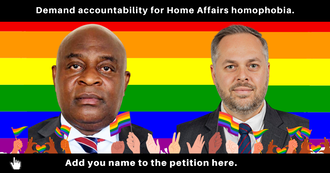.png)
